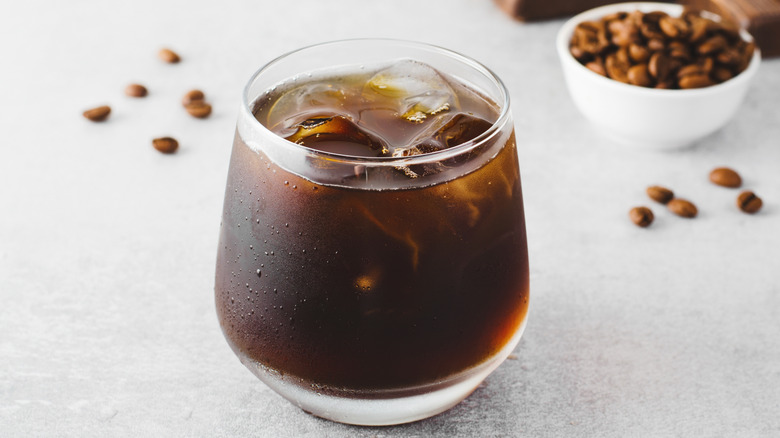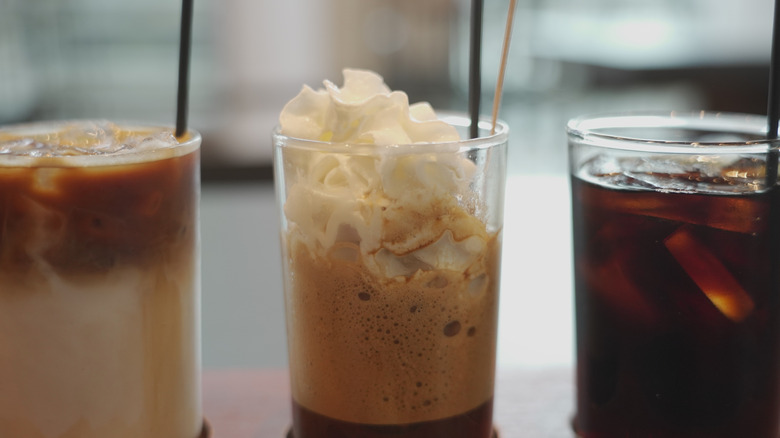How Long To Steep Your Cold Brew For The Best Flavor
Cold brew has been my go-to method for brewing coffee since my coffee maker broke. It's low-tech, but I love the smooth, high-test results. But there's a little more nuance to cold brew, as coffee pro Andrea Allen explains.
Allen is the co-founder of Onyx Coffee Lab. She also took the top prize in the 2020 U.S. Barista Championship, and was a runner-up for the World Championship the year after. According to Allen, time is one of the most important factors.
There's a reason why you can't just leave coffee in cold water for a few minutes and come back to a perfect brew. "When using cold water to brew coffee, the length of time needs to extend to ensure proper extraction (or brewing)," she tells The Takeout. "6-8 hours would be a minimum time, depending on the coffee."
If you want a stronger flavor, wait longer. "Brewing it longer just extracts more of the potential dissolvable solids, creating more robust flavor," says Allen. If you prefer your cold brew black, she recommends six hours — but if you plan to dilute your cold brew with lemonade, water, or milk, bump the time up to 12 hours. But she doesn't recommend waiting much longer than that. "Once you get to the strength at around 12 hours that's about the strength you usually want for a concentrate," she explains. "Beyond that, it won't really get 'stronger,' it will just get more bitter."
How to make stronger cold brew coffee
If 12 hours doesn't produce a strong enough brew, Allen recommends adding more coffee, not more time. "To create a stronger concentrate adjust the coffee to water ratio," she says. The longer cold brew coffee brews, the more time it has to oxidize — the process which produces those bitter, undesirable flavors. Adding more coffee will give you a big boost of the smoother, fruitier flavors that cold brew is known for without having to add more time. It's the same logic you'd use to make concentrate for a tea latte.
Search for cold brew recipes online, and you'll notice that different recipes call for wildly different coffee-to-water ratios. Some call for one part coffee to eight parts water; others call for a one-to-four ratio. You might need to play around to find the perfect balance for you and your favorite blend. But don't assume that you'll get the same flavors from cold brew as you would from a standard coffee maker. Cold brew often brings out fruitier flavors, so pick your blend accordingly.
Allen offers one last tip: Skip the fridge. "My suggestion is on the countertop," she notes. But makig cold brew on the counter also has its downsides; if you leave the coffee out too long, it'll start to mold. To keep her coffee from molding, Allen recommends storing your cold brew in the fridge after you've filtered out the grounds.

